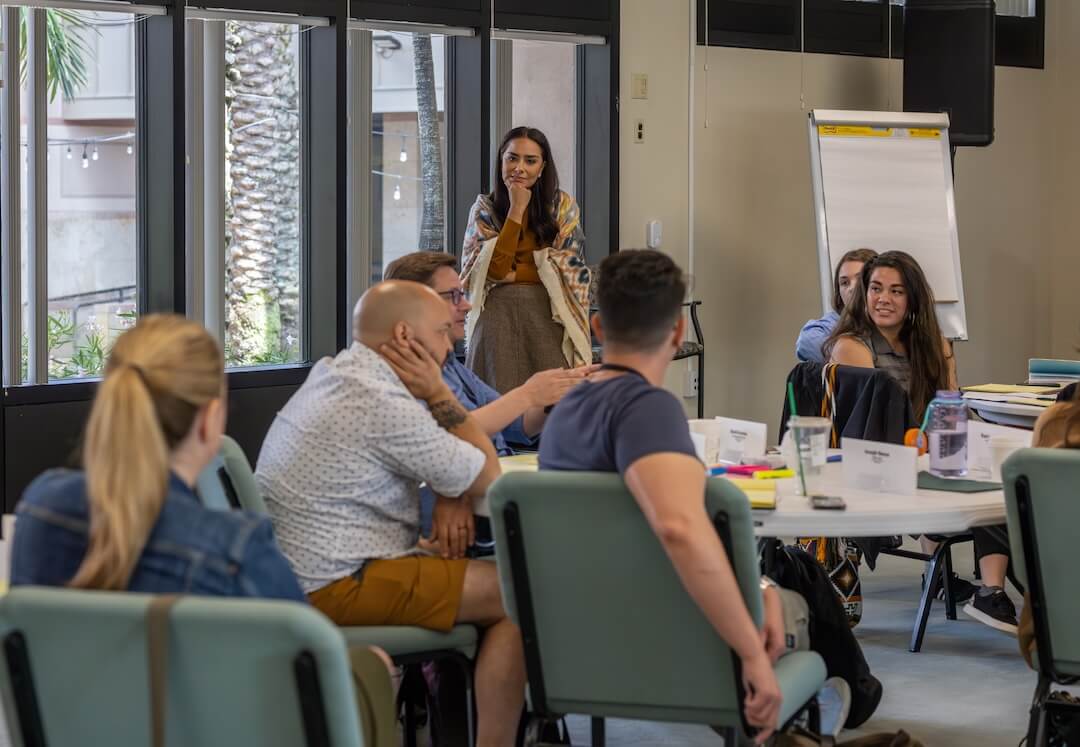ST. PETERSBURG, Florida (Sept. 17, 2018) — The Poynter Institute, a global leader in journalism, today announces the nine student media organizations selected for the second year of its College Media Project. The yearlong initiative provides participants with custom in-newsroom training, online seminars and support for a campus project — free of charge.
“It’s not about delivering a one-time training,” said Elissa Yancey, Poynter’s College Media Project leader, award-winning journalist and owner and CEO of E.Y. Ink. “It’s about planting the seeds for sustained growth and supporting student journalists who have few other places to turn. This project provides tools student journalists can use in both the short- and long-term to create better work and engage with their communities.”
Poynter received 63 applications for the nine available slots, and after careful review selected the following as participants of the 2018-19 Poynter College Media Project:
- Bowdoin College — The Bowdoin Orient (Calder McHugh, editor-in-chief)
- North Carolina Agricultural & Technical University — The A&T Register (Alexis Wray, editor-in-chief)
- San Diego State University — The Daily Aztec (Will Fritz, editor-in-chief)
- Southern Illinois University-Edwardsville — The Alestle (Tammy Merrett, student publications program director)
- St John’s University — The Torch (Angelica Acevedo, editor-in-chief)
- Texas A&M — The Battalion (Megan Rodriguez, editor-in-chief)
- University of Florida — The Independent Florida Alligator (Romy Ellenbogen, digital managing editor)
- University of Michigan — The Michigan Daily (Alexa St. John, editor-in-chief)
- University of Utah — The Daily Utah Chronicle (Emily Anderson, editor-in-chief)
Applications were screened for potential, need, commitment, diversity in student population, school size and type.
The process of reviewing dozens of applications from all regions in the country showcased the challenges on college campuses today.
Some shared stories of intimidation by administrators and even their own peers. Others noted ongoing Title IX investigations and their eagerness to learn more about how to hold their institutions accountable for transparency in job searches and complaints about employees. Many grappled with addressing major issues across the nation, from gun laws to intimate-partner violence to immigration and free speech.
Perhaps the biggest takeaway was the persistent and growing demand for supplemental journalistic training for student journalists.
Even schools with well-established and highly ranked journalism programs sought extra support for their work, while an alarming number of student media outlets had no support — either via faculty, advisers or school funding — to learn the basics of their craft, much less how to address ethical dilemmas and use readily available investigative tools.
“The college press plays a critical role in civic engagement on campus,” said Poynter senior vice president Kelly McBride. “They are a check on the power of the administration. And they expose students to diverse ideas. We’re thrilled to expand Poynter’s College Media Project this year to reach more students in the critical moments of their early careers.”
Poynter tripled the number of participating student media organizations since the project’s pilot program in 2017-18 and will open the project’s past inaugural online seminars to all student media organizations that applied on a tuition-free basis.
Fara Warner, an award-winning journalist, educator and former vice president of custom content at Dow Jones, joins Yancey to help lead and facilitate the 2018-19 project.
Poynter’s College Media Project is tuition-free, thanks to support from the Charles Koch Foundation. Follow the project online using #PoynterCMP.
About The Poynter Institute
The Poynter Institute for Media Studies is a global leader in journalism education and a strategy center that stands for uncompromising excellence in journalism, media and 21st-century public discourse. Poynter faculty teach seminars and workshops at the Institute in St. Petersburg, Florida, and at conferences and organizations around the world. Its e-learning division, News University, newsu.org, offers the world’s largest online journalism curriculum in seven languages, with over 300 interactive courses and 150,000+ registered users in dozens of countries. The Institute’s website, poynter.org, produces 24-hour coverage about media, ethics, technology and the business of news. The world’s top journalists and media innovators come to Poynter to learn and teach new generations of reporters, storytellers, media inventors, designers, visual journalists, documentarians and broadcast producers. This work builds public awareness about journalism, media, the First Amendment and discourse that serves democracy and the public good.
Contact: Tina Dyakon
Director of Advertising and Marketing
The Poynter Institute
tdyakon@poynter.org
727-553-4343






